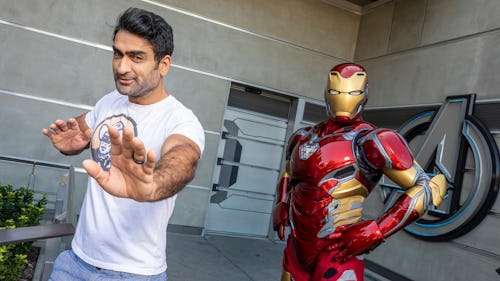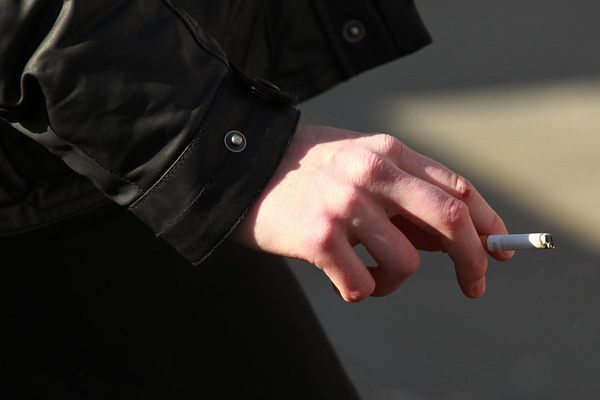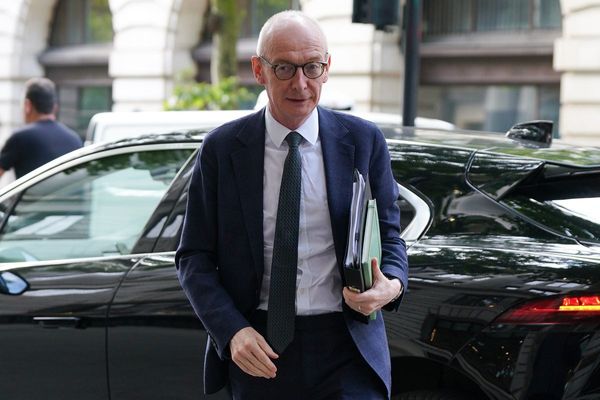
It’s become hard to parse which is more powerful: our own evolutionary self-loathing, or constantly having Hadid sisters shoved in our faces to make us buy things that promise to fix our grotesque inadequacies. But the effect is the same regardless — we all are in a never ending battle with our own bodies. It doesn’t matter how many dressed up, Instagramable infographs are out there reminding you that “you are stardust;” their subsequent messages in media convey that said stardust is more valuable if it has a six-pack. One place that seems to have always had more gray area, though, is these images’ varying impact based on gender. While thankfully we’re in a society that’s (slowly) becoming hip to the fact that gender is a social construct, female versus male body image is a bit antiquated of a concept — but Hollywood itself is an antiquated realm. Kumail Nanjiani vulnerably confessing his triumphs and related struggles within that world seems to have perfectly laid out the nuance of gender bias within body image stereotypes.
All it takes is to witness a slovenly Adam Sandler or a soft Seth Rogan being cast as romantic leads opposite Jennifer Aniston and Katherine Heigl, respectively, to realize body image standards are vastly skewed in entertainment. Lots of work has gone into rebelling against these patriarchal hypocrisies and harmful standards, but it remains a reality no matter how many Women In Hollywood luncheons try to tackle the issue. For everyday women, achieving a more self-loving, body positive society is possible — but when it comes to our modern day gods on the big screen, the insidious standards of fitness are just part of the job. Hollywood stars are impossibly rich, beloved, and seem to have everything we mere mortals lust after; it’s kind of in their job descriptions to play the part of being impossibly hot, because everything else they do and have seems equally impossible.
Within that framework is where the crossover into male body image happens. It’s the ideology that infiltrated Kumail Nanjiani’s mind when he was finally cast in a dream roll as a Marvel superhero. From what he tells Vulture, his casting in The Eternals caused an obsession to get hunky — not just for the role, but also to claim a new place in Hollywood for himself.
It’s a little wild that a 2001 Jack Black slap stick comedy vehicle could be wise or prophetic, but it’s all a little bit like Shallow Hal—except instead of being magically seen as ripped and physically perfected, Nanjiani has dedicated over a year to become that way IRL. And just as Gwyneth Paltrow was in the film, Nanjiani is being treated differently now. He’s getting better, bigger roles — ironically as average guys, but the titular average guys in the blockbuster films rather than the nerdy, quippy friend he often played before. He is complimented and fawned over by waiters. He is sized up at the gym. People look him up and down like meat candy in a way that a kid who grew up being called “chicken shoulders” never expected to be. His candid revelations about his transformative experience unfortunately prove something we all know in our carbohydrate-loving guts: it’s rewarding to be super fit, and if you want to overcome funny guy pigeonholing in Hollywood, you have to look the part.
It’s also a lifestyle that has not just a Sisyphean quality, but a consuming one. From what Nanjiani says, becoming a super hero was as grueling a physical process as it was a mental one. He tells writer E. Alex Jung over an egg white omelette, “I know exactly what I weigh every day, and if I could change something, I would love to not have to think about that.” He describes never giving himself a day off at the gym, and in an Instagram post that was a sort of coming out announcement of hotness from the set of The Eternals, he thanks so many people for helping chisel his physique that it brings to mind the “it takes a village” slogan usually reserved for child rearing.
But that’s a careful point he goes out of his way to underline. He very poignantly reminds fans that his transformation wouldn’t have been possible without an expensive team of experts, paid for by a huge movie studio, supported by having already had a Hollywood trainer for six years to create the foundation from which to safely body build. It’s a complex double message: on the one hand he’s saying, “Hey, normie, it’s okay to be a little doughy. You’re just not famous,” and on the other hand he’s kind of insinuating it would be impossible for anyone to get swole without privilege. It’s an empathetic way to announce his new status, but also one that belies just how much body image addles our psyches—because normal people get fit all the time, albeit without the benefit of a team.
The most upsetting part of Nanjiani’s glow up, though, is that people were upset by it to begin with. Entire reddit threads were dedicated to discussing if he’d used steroids or not. Trolls took to the comment sections of his social media. And while internet trolls have become the new tree falling in the woods, the number of them lobbing hate at Nanjiani draws a contrast to when other funnymen like Chris Pratt and Paul Rudd got fit for the camera and just became deep wells for the thirsty to drink from. “Generally speaking, a big part of the ascribing of things that happens is sometimes it puts a filter on the world, and brown Asian men are completely desexualized,” Nanjiani told Vulture. He was speaking of the way his character was called ugly on Silicon Valley, but the same principle applies here when him becoming hot was somehow jarring to people. And that’s an unfortunate truth in the matter: the gross, racist knee-jerk of suburban white America at a brown man being attractive. His wife Emily V. Gordon added another perspective, which is that Nanjiani was the epitome of revenge of the nerds, a self-ascribing nerd comic who’d made it big. But by jumping to comic book hero status, he went too big; he’d betrayed them.
There’s a thriving toxic masculinity within the story of Kumail Nanjiani’s body — a journey that should have been private but by way of being famous, the very reason why he started working out to begin with, it’s fodder for everyone. It’s a Catch-22 of manhood—men must be hyper muscular to be masculine, but that vanity is inherently feminine. Add in the layer that is the repression of feelings by men that then manifest in dark corners of the internet, and the awful layer of racism and you have a 101 of things that plague America. Luckily, because Nanjiani is an empathetic, perceptive comic first, and a Hollywood super hero second, he’s outting these contradictions and sticking points in a way that is hopefully helpful in moving the needle of Tinsel Town towards inclusivity. At the same time he correctly admits, “It shouldn’t be the job of any one person to upend an entire culture.” America has always done a horrible, obsessive job in reacting to body transformations, in a way that denotes how fucked up we all are about bodies in general. But Nanjiani is defending his god-given right to be hot if he wants to be, and while being couched in the privilege of being a Hollywood superhero, that is a rebellious act in and of itself.







